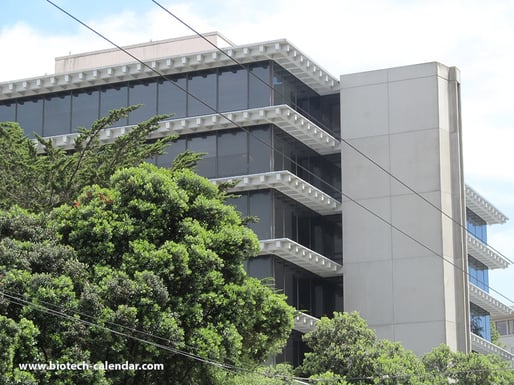The Human Computation Institute, in collaboration with UC Berkeley and other institutions, has developed a new game called Stall Catchers that will allow the public to directly contribute to research for a cure to Alzheimer's disease. In the online game, participants will view movies of real blood vessels in mouse brains and search for any clogged capillaries, or stalls. Capillary stalls, where blood is no longer flowing, are thought to be a key cause of Alzheimer's disease.
Read More
Tags:
CA,
University of California Berkeley,
California,
University of California,
Alzheimer's Research,
Southwest Region,
UC Berkeley,
Northern California BioResearch,
Alzheimer's Disease
Mechthild Tegeder, a professor of Plant Molecular Physiology at Washington State University, has designed a way to dramatically increase the yield and quality of soybeans. Tegeder accomplished this by developing a novel way to double the amount of nitrogen fixed by the plants. The agricultural research study indicates a breakthrough that could help meet society's need to feed an increasing population while also protecting the environment.
Read More
Tags:
Washington,
WSU Pullman,
WA,
Washington State University Pullman,
agriculture,
WSU,
Washington State University,
agricultural,
Northwest Region,
research news,
vegetable crops,
agricultural business,
agribusiness
The Laboratory of Neuro Imaging at the University of Southern California recently received a $21.7 million research grant from the National Institutes of Health to study epilepsy. Epilepsy is currently incurable, and the research team supported by the recent NIH grant will work toward finding a cure and developing treatments to prevent the condition.
Read More
Tags:
CA,
University of Southern California,
Epilepsy,
California,
USC,
Research Funding,
research grant,
NIH grant,
NIH award,
Southwest Region
Seven UC San Francisco researchers have been awarded grants from the National Institutes of Health to fund innovative endeavors in biomedical research. The highly competitive awards include the Pioneer Award, the New Innovator Award and the Early Independence Award.

Read More
Tags:
CA,
University of California San Francisco,
new research funding,
California,
Research Funding,
UCSF,
NIH award,
Southwest Region,
research grants,
NIH grants
Dr. Stefan Sarafianos, a professor of Molecular Microbiology and Immunology at the University of Missouri, was recently awarded a research grant of $3 million from the National Institutes of Health to develop new drugs to treat Hepatitis B (HBV).
Read More
Tags:
Missouri,
University of Missouri,
Drug Development,
MO,
NIH award,
Midwest Region,
MU,
Hepatitis B,
University of Missouri, Columbia
The National Science Foundation has awarded $24 million to create the Center for Cellular Construction; a new bioengineering center based at UC San Francisco. The cutting edge interdisciplinary center will transform the field of cell biology by bringing together cell biologists, engineers, physicists, and computer scientists to create machines made out of living cells.
Read More
Tags:
University of California San Francisco,
California,
University of California,
Research Funding,
UCSF,
Southwest Region,
UCSF Mission Bay,
NSF award,
New research center
Dr. Gürol Süel, a Molecular Biology professor at the University of California San Diego, has been named a HHMI-Simons Faculty Scholar by the Howard Hughes Medical Institute (HHMI), the Simons Foundation, and the Bill & Melinda Gates Foundation. This prestigious distinction includes a $1.5 million award to support Süel's research study on how bacterial cells use electrical signals to communicate with each other.
Read More
Tags:
CA,
University of California San Diego,
California,
UCSD,
Research Funding,
UC San Diego,
research grant,
Southwest Region,
biofilms
The $8M grant, given by the National Heart, Lung, and Blood Institute, will support a project in which the research team will use bioengineered stem cells and tissue to create a functional heart patch. The patch will restore function and prevent heart failure that can be caused by a heart attack's damage.
Read More
Tags:
Stem Cells,
heart disease,
Duke University,
University of Wisconsin Madison,
Alabama,
UAB,
AL,
Southern Region,
University of Alabama at Birmingham,
bioengineering
The $3.3M research grant, given to a team of researchers at the University of Southern California, will support a project that will lead to improved treatment of craniosynostosis. Craniosynostosis is a birth defect that occurs in roughly one out of every 2,500 live births and in severe cases can lead to developmental delays, hearing loss, blindness, and even death.
Read More
Tags:
CA,
University of Southern California,
California,
USC,
Research Funding,
NIH grant,
Southwest Region,
BioResearch Product Faire™,
Birth Defects
A team of researchers led by Gaya Amarasinghe, associate professor of Pathology and Immunology at Washington University School of Medicine, was recently awarded a $13 million NIH grant to study the replication process of the Ebola virus.
Read More
Tags:
Washington University St. Louis,
Research Funding,
MO,
NIH grant,
Midwest Region,
ebola


